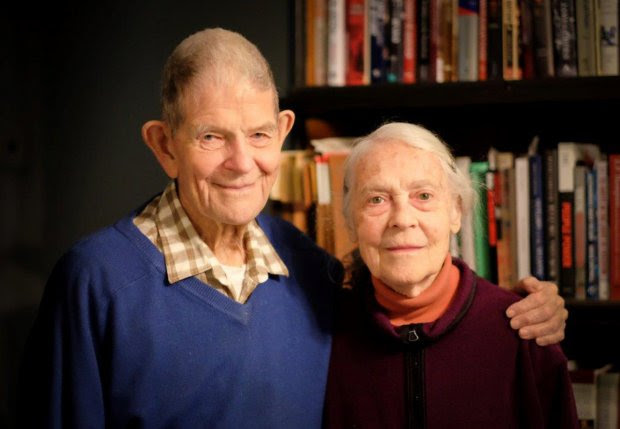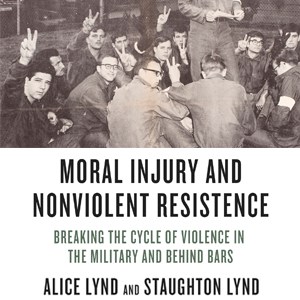|
DESCRIPTION
|
|
When ordinary people have done, seen, or failed to prevent something that betrays their deeply held sense of right and wrong, it may shake their moral foundation. They may feel that what they did was unforgivable. In this thoughtful book culled from a wide range of experiences, Alice and Staughton Lynd introduce readers to what modern clinicians, philosophers, and theologians have attempted to describe as “moral injury.”
Moral injury, if not overcome, can lead to an individual giving up, turning to drugs, alcohol, or suicide. But moral injury can also demand that one turn one’s life around. It offers hope because it indicates resistance to the use of violence that offends a sense of decency. Within the military and in prisons—-institutions created to use force and violence against perceived enemies—-there have arisen new forms of saying “No” to violence. From combat veterans of America’s foreign wars to Israeli refuseniks, and from “hardened” criminals in supermax confinement in Ohio to hunger strikers in California’s Pelican Bay prison, the Lynds give us the voices of those breaking the cycle of violence with courageous acts of nonviolent resistance.
As we become more awake to the horrors that we as a society have done or failed to prevent, and when we become aware of what conscience demands of us in the face of recognizable violations of fundamental human rights, we may take heart from the exemplary actions by individuals and groups of individuals described in this book.
|
|
PRAISE
|
|
“Society commemorates wars but tends to forget its veterans, who often return home plagued by shame and guilt for killing; many prisoners also carry the weight of their violent actions and the Lynds do a remarkable job in connecting the struggles of the two without equating them.”
—-Carl Mirra, Marine Corps resister and author of Soldiers and Citizens
|
|
“This book links the damage done to soldiers and prisoners: the complex ways in which our society uses and abuses the generations we should be empowering rather than destroying. It is a must read for anyone concerned about survival with integrity.”
—-Margaret Randall, author of Haydée Santamaría, Cuban Revolutionary
|
|
“Staughton and Alice Lynd have accompanied today’s executioners and victims, the soldiers and prisoners of today’s empire, on and off death row, in and out of court, by law and by direct action. With decades of experience, courage, patience, and intelligence they listen, learn, and record individual human beings in the belly of the beast who struggle to forgive and to resist. The collaboration results in the highest human faculty of moral reasoning that promises to link the individual, suffering human conscience to restored humanity. Empire cannot withstand even the hint, much less the fulfillment of such promise!”
—-Peter Linebaugh, author of The Magna Carta Manifesto
|
|
ABOUT THE AUTHORS
|
 Alice Lynd was a draft counselor and trainer of draft counselors during the Vietnam War. In 1968, she published We Won’t Go: Personal Accounts of War Objectors. She later became first a paralegal and then a lawyer. After retirement from practicing labor law in the wake of plant shutdowns, she became an advocate for prisoners sentenced to death and/or held for years in solitary confinement at Ohio’s supermaximum security prison. Alice Lynd was a draft counselor and trainer of draft counselors during the Vietnam War. In 1968, she published We Won’t Go: Personal Accounts of War Objectors. She later became first a paralegal and then a lawyer. After retirement from practicing labor law in the wake of plant shutdowns, she became an advocate for prisoners sentenced to death and/or held for years in solitary confinement at Ohio’s supermaximum security prison.
Staughton Lynd is a historian, lawyer, activist, and author of many books and articles (see his PM releases HERE). As an outspoken opponent of the Vietnam War, he came to be unemployable as a university professor and became a lawyer. When Ohio built its supermaximum security prison in Youngstown, Staughton and Alice spearheaded a class action that went to the Supreme Court of the United States, establishing due process rights of supermaximum security prisoners. |
|
APRIL
VALID THROUGH 04/30
|



